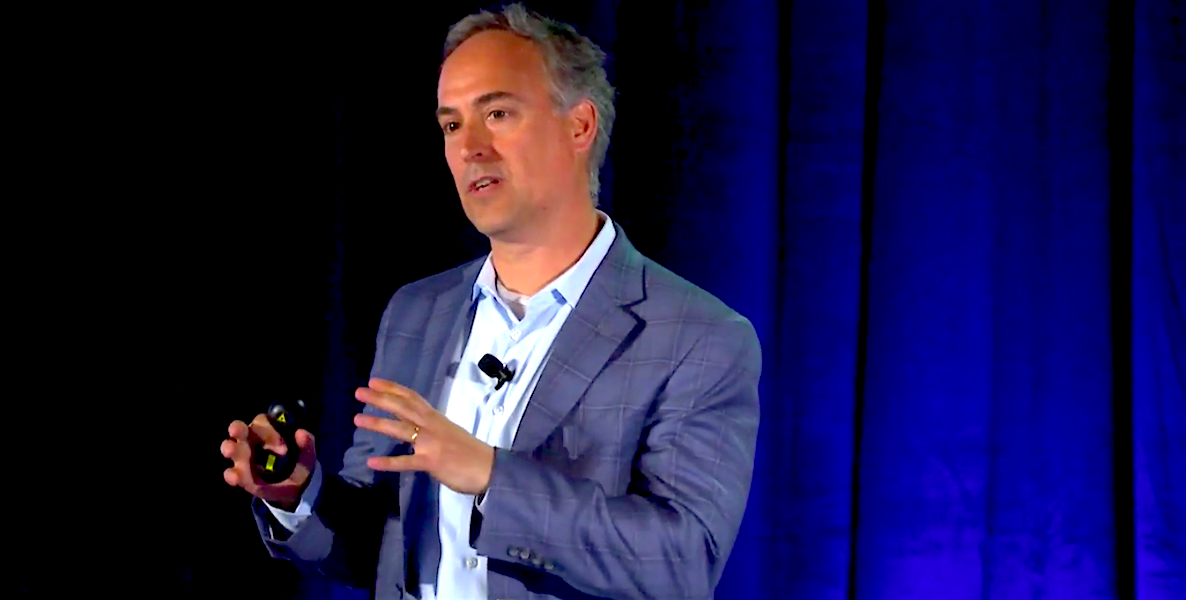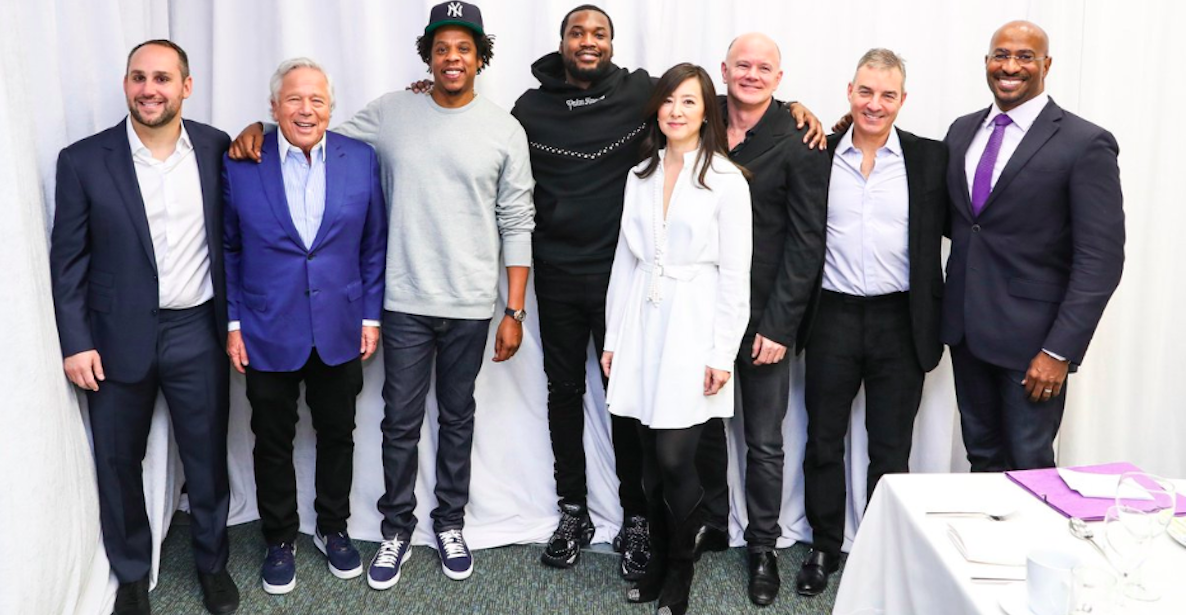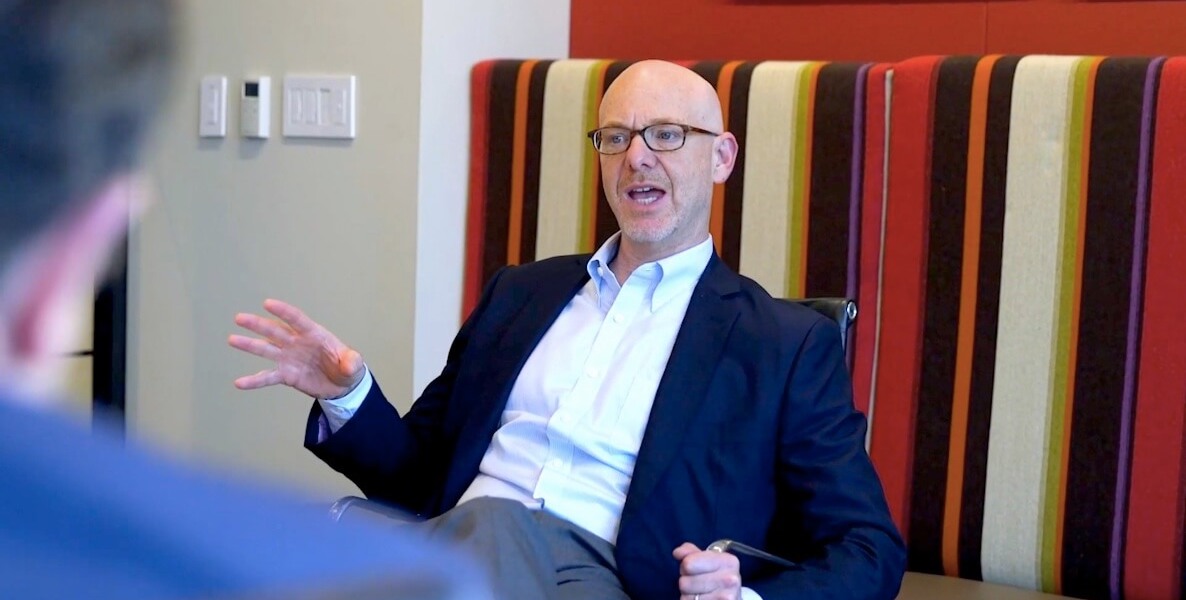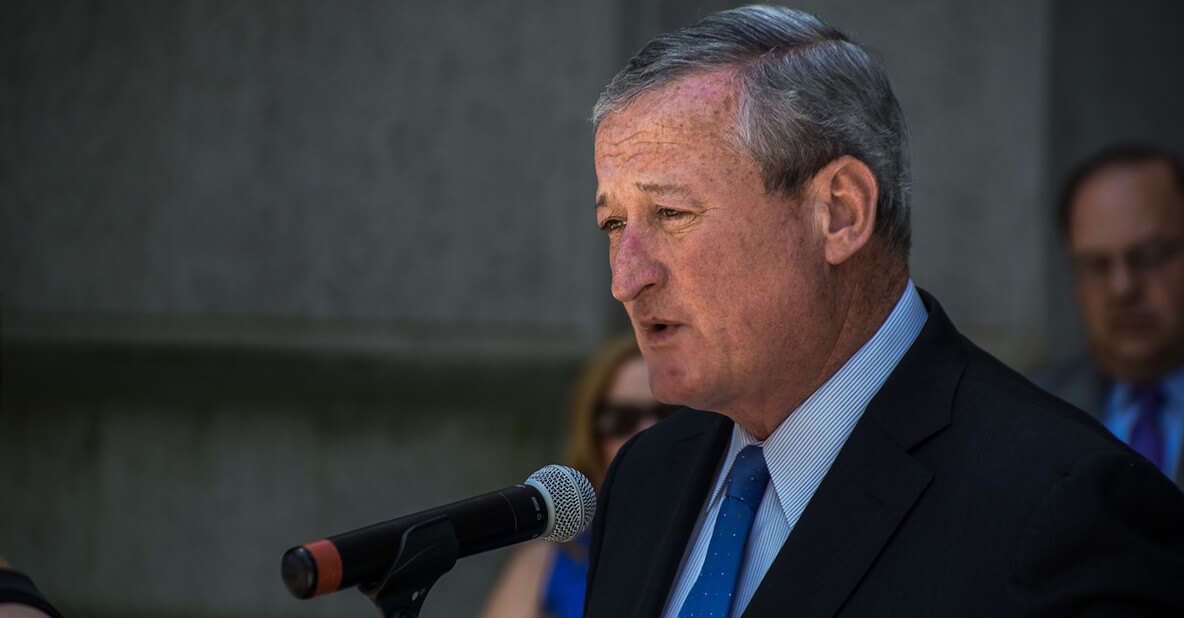A few years ago, I was at a conference about innovation in cities, and someone asked Kasim Reed, the then-mayor of Atlanta, just how he’d managed to post such stellar economic growth numbers in post-Great Recession America. He smiled and confessed that his success in creating jobs had little to do with him.
To this story in CitizenCastLISTEN
What a novel idea, I thought at the time: an engaged business community focused on widespread problem-solving. Here in Philly, in what has become something closer to a branch office town, our business leadership has long been siloed, fearful of wading into the muck of local politics. Better to write a check to a do-gooder nonprofit than dirty your hands.
It wasn’t always like this. Back in the early ’90s, for example, a group of local businessmen, led by developer Ron Rubin, ran a candidate for mayor who had already lost a couple of high-profile elections; the city’s bond rating was flirting with junk status when Ed Rendell was elected, and his can-do spirit and pro-growth policies ended up bringing the city back from the brink.
Don’t get me wrong; we’ve had business leaders like the late, great Gerry Lenfest step up and make a huge difference. But few have been outspoken agents of real change. I was reminded of this when, just days before the stunning announcement that he’d be stepping down from his role as senior executive vice president at Comcast, David Cohen made some news along these lines in an interview with Citizen co-founder Ajay Raju, as part of Raju’s “Overheard at Tredici” newsmaker Q&A series for 6ABC.
Michael Rubin, David Adelman and Josh Kopelman have all talked about how, in their forties, they woke up to the sense that to whom much is given, much is required. Each has spent considerable monetary and reputational capital in pursuit of the common good.
Cohen, swinging freely, laid out a devastating analysis of what holds Philly back. First, he took aim at just how local government impedes smart development. “We have a political process that makes it impossible for legitimate, non-politically connected developers to develop vacant land in Philadelphia at scale,” Cohen says, before deftly expanding the critique. “Layer on top of that that our building trades unions are a significant impediment to affordable housing development in Philadelphia. Look, I am a fan of the building trades, we use the building trades on our buildings, they are the finest workmen in America … but we can afford the premium we’re paying to get those incredible craftspeople. If you’re trying to build affordable housing, you can’t pay 2x or 3x what you can get in the labor market for maybe slightly less skilled building trades workers.”
All the hand-wringing about the tax abatement on new construction? What never gets mentioned is why we had to have it in the first place: to help make up for the uncompetitive costs labor had long foisted upon Center City development. Which, of course, leads right into Cohen’s third critique: the short-sighted ideology of City Council.
“We do have one of the most anti-business city governments in America,” said Cohen—Rendell’s chief of staff in the ’90s. “There is no way to describe City Council’s attitude toward business other than to say they are anti-business, hostile to business and it makes it extremely difficult to attract business to our Start a socially-good businessDo Something
Cohen doesn’t document the myriad ways Council keeps Philadelphia business from competing. But let us count those ways. Start with Council’s penchant for dictating operations to local business owners, whether mandating predictive scheduling or trying to prohibit employers from inquiring about the past salary history of potential hires, despite the fact that women who decline to disclose their pay history have actually been offered 1.8 percent less than those who do disclose, which would seem to undercut the whole premise of the pay history ban.
And taxes? We’re the nation’s most-taxed city not named Bridgeport, Connecticut. The evidence is clear that cities that flourish—like low-tax, high-growth Houston—relieve the tax burden on working folks and businesses that employ working folks, while investing in pro-growth strategies.
By contrast, just think of the burdens we’re placing on middle-class residents here. There’s our highest-in-the-nation wage tax, in which we tax what can up and move: people. There’s Mayor Kenney’s sacred soda tax, the parking tax (which dwarfs even New York’s), cigarette and drink taxes, ever-rising property taxes, an amusement and sporting events tax, and a hotel tax. Want to open a business here? Then you better be prepared to pay the city’s usurious vig in the form of income and gross-receipt taxes, net profits taxes, and use and occupancy taxes.
A city is not an island. It competes with neighboring states and counties for businesses and workforce. When progressives like Helen Gym and Councilwoman-elect Kendra Brooks argue for yet more redistribution, they’re actually perverting progressivism.
That’s what Cohen is getting at. And, let’s be clear, Cohen is no supply-sider. He’s what we used to call a liberal, as Barack Obama would attest, driven toward providing equal opportunity rather than equality of result. But Cohen’s critique doesn’t stop there.
Critically, Cohen also indicts the local business community itself, comparing us to Cleveland and Detroit, respectively. “Both are places that have a historically active and aggressive business community that does serve as an effective counterweight to bad and inappropriate actions by the government in those cities,” he says. “Ed Rendell spoiled the business community. You didn’t need the business community as a countermeasure to what city government was doing—Ed was the counter measure. You had Ed as the defender and a voice of economic growth and prosperity.”
“I tell people all the time that the solution to poverty is to get people jobs, not to build up your welfare programs. That doesn’t get people out of poverty. And the only way I know of to get people more jobs is to create more jobs,” Cohen says.
For the first time in a long while, the timidity Cohen rightly calls out may be changing. A new generation of business leader just might be emerging in Philadelphia. Earlier this week, at our Ideas We Should Steal Festival, we featured a panel with three of them: Michael Rubin, David Adelman and Josh Kopelman, all talking about how, in their forties, they woke up to the sense that to whom much is given, much is required. Each has spent considerable monetary and reputational capital in pursuit of the common good. Billionaire Rubin’s story, of course, is well-known, and it dominated the panel discussion: He’s dedicated his efforts to criminal justice reform after seeing how his friend, Meek Mill, had been railroaded by a broken system.
There wasn’t as much time to explore just how Adelman and Kopelman have stepped up. Until recent years, both, like Rubin, had been focused on their businesses. Adelman had built Campus Apartments into the nation’s leading provider of university housing, while co-founding FS Investments and his investment company, Darco Capital. Meantime, Kopelman had carved out a reputation as one of the nation’s preeminent venture capitalists, providing seed-stage funding for a who’s who of companies that includes Uber and LinkedIn.
Larry Platt on businessRead More
Like Adelman and Rubin, Kopelman has undergone a socially conscious awakening in recent years. His Twitter feed leads with the famous “First they came” quote of German pastor Martin Niemoller, and he’s taken on the Board chairmanship of the Inquirer, a particularly brave civic act for a guy whose whole career has been about funding disruption. “I’m not an orchestra guy or an opera guy or an art museum guy,” Kopelman said when he assumed the chairmanship. “But this is a company that serves a vital civic purpose and also is under threat like all publications, newspapers, from massive disruption. And that is something where I might be able to be a little bit helpful. This might be an area where I can give back to the city.”
Inclusive growth can only happen when the plutocrat class sees its own self-interest as inextricably tied to a working guy not having to worry about whether he can afford to make next semester’s ballooning tuition payment. And it would likewise require of the average worker that he not resent capitalists making a fair share of scratch, provided crony capitalism and greed get checked at the door.
The newly engaged likes of Rubin, Adelman and Kopelman walk into a political moment where there is widespread resentment for and distrust of anyone who has done exceedingly well. They’d be well served to resist the temptation to respond defensively to such class-based dog whistles. That’s the advice, anyway, from fellow plutocrat Nick Hanauer, who, five years ago, predicted this very moment in our zeitgeist. Hanauer was the first non-family investor in Amazon and the founder, co-founder or funder of in excess of 30 companies. He owns a plane and a bank. In a 2014 piece in Politico headlined “The Pitchforks Are Coming… For Us Plutocrats,” Hanauer addresses his fellow Masters of the Universe:
What sets me apart, I think, is a tolerance for risk and an intuition about what will happen in the future. Seeing where things are headed is the essence of entrepreneurship. And what do I see in our future now?
I see pitchforks.
At the same time that people like you and me are thriving beyond the dreams of any plutocrats in history, the rest of the country—the 99.99 percent—is lagging far behind. The divide between the haves and have-nots is getting worse really, really fast. In 1980, the top 1 percent controlled about 8 percent of U.S. national income. The bottom 50 percent shared about 18 percent. Today the top 1 percent share about 20 percent; the bottom 50 percent, just 12 percent.
But the problem isn’t that we have inequality. Some inequality is intrinsic to any high-functioning capitalist economy. The problem is that inequality is at historically high levels and getting worse every day. Our country is rapidly becoming less a capitalist society and more a feudal society. Unless our policies change dramatically, the middle class will disappear, and we will be back to late 18th-century France. Before the revolution.
Hanauer fought for the $15 minimum wage in Seattle on the basis of a pro-growth argument. Demand, he argued, can create a middle class. Like Henry Ford, who once talked about paying his workers enough so that they could afford his cars, Hanauer argued that it’s an economic win-win when restaurant workers can afford to eat where they work. He’s gone on to become an evangelist for a new way of thinking about economics.
Check out his TED talk, which includes the great line, “being rapacious doesn’t make you a Capitalist; it makes you a sociopath”:
Look, Hanauer’s cure in Seattle—the $15 minimum wage—might not be the right strategy here, where there’s little left to redistribute. But the point is that he identifies our greatest threat—the widening gulf between have and have-not—and, in his contrarian take on capitalism, he points to something in the human spirit that yearns toward the common good. In effect, Hanauer explains the mid-life social consciousness awakenings of Rubin, Adelman and Kopelman.
Rather than shun the successful, we should welcome them to the civic problem-solving table. That’s what’s happening in Chicago, as I recently chronicled, where the private sector’s best and brightest are contributing $15 million per year in pro-bono expertise to help local government implement smart policy. We need more, not less, of that energy and expertise here.
But it will require of our 1 percent that they start from a place of empathy and understanding, as have Cohen, Rubin, Adelman and Kopelman. In an economy where wages haven’t grown in 40 years and where vulnerable groups have been systematically redlined out of opportunity, resentment towards those who have done well is kinda rational. The challenge is to get involved and do good anyway.
A few weeks ago, I heard City Councilwoman Helen Gym express that resentment. Now, I’m a fan of citizen activists—Jane Jacobs is a particular hero. But Jane Jacobs never crossed the line into demagoguery. “I see my role as not being a megaphone for those who already have,” Gym said during a panel discussion. “Growth on its own is not equal. Growth left to its own devices will favor the powerful over the weak, the connected over the disenfranchised, the bank over the individual. Our goal on City Council is to make sure that those things don’t go on that natural course. We are the balance to that.”
In an economy where wages haven’t grown in 40 years and where vulnerable groups have been systematically redlined out of opportunity, resentment towards those who have done well is kinda rational. The challenge is to get involved and do good anyway.
That’s a vision of elected official as regulator, not partner, and certainly not stimulator. When FDR passed the GI Bill of Rights, (over the objections of socialist opposition from the likes of Father Coughlin), creating arguably the most vibrant economy in history, he was shaping capitalism toward progressive ends—not just inhibiting it.
How can we do that here? On that same panel with Gym, labor leader Ryan Boyer nodded toward answering that question by coming back, time and again, to the notion of cultivating cross-sector relationships in what has always been a highly siloed town. “Common ground doesn’t start at the solution,” he said. “There needs to be more collaboration between the business community and the political community.”
That may sound pat, but let’s dig into what Boyer is getting at. Many business Watch Raju’s interview with CohenVideo
We need a new grand bargain. For too long, middle class workers and those aspiring to the middle class have been given an overly simplistic choice: tax cuts for the rich on the one hand, safety net handouts on the other. As Hanauer suggests, truly inclusive growth can only happen when the plutocrat class sees its own self-interest as inextricably tied to a working guy getting a raise and not having to worry about whether he can afford to make next semester’s ballooning tuition payment. And it would likewise require of the average worker that he not resent capitalists making a fair share of scratch, provided crony capitalism and greed and shady dealings get checked at the door.
This is why we need engaged job creators like Cohen, Rubin, Adelman and Kopelman: Because, as Atlanta Mayor Kasim Reed found out, they know how to grow an economy, and, as per Hanauer, those who have done well just might have the natural inclination to do good, too. We’ve got to move past our comfortable encampments. The 1 percent needs to get off the sidelines and into the game. And, no matter what the far left says, you can’t have jobs without employers.
Want more Philly business news? Check out these related articles:
- Philly’s left needs to get government right
- Why it’s time for a capitalist reformation
- The Merchant’s Fund gives $10,000 to small businesses when they need it
- How to grow inclusive wealth in Philadelphia’s neighborhoods









